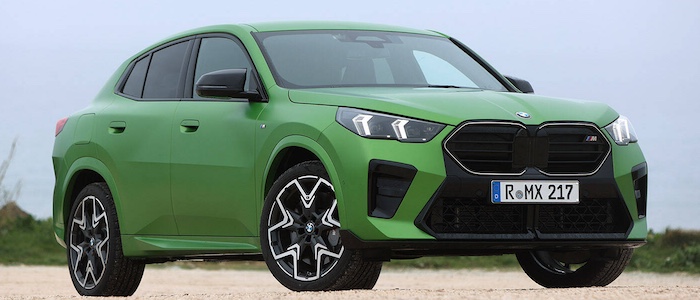Compare two cars
Compare any two cars and get our Virtual Adviser™ opinion
Dimensons & Outlines
Check vehicle history
Engine
EMP2 213 / 58kWh
Performance (manual gearbox)
Performance (automatic gearbox)
Expenses
Virtual Adviser's™ opinion
Two significantly similar cars, no doubt about that. Still, each one has something different to offer. Having both cars powered by electric engines and utilizing the 5-door suv body style within the same 'SUV' segment, the only major difference here really is their wheel drive configuration (4 x 4 for the BMW and front in the case of the Peugeot). The first one has a BMW-engineered powertrain under the hood, a PMSM Electric unit in formation 1 / 1 with 313hp unit, while the other one gets its power and torque from a PMSM Electric unit in formation 1 / 0 with 213hp engine designed by Stellantis.
SafetyBoth vehicles got tested by European New Car Assessment Programme (Euro NCAP), with the BMW being a slightly better choice apparently. Moving further on, let's take a closer look at some additional safety-related facts. Both vehicles belong to the suv segment, which is generally a very good thing safety-wise, still it doesn't help us solve our dilemma, does it? Furthermore, when it comes to weight, a factor that most people underestimate, the German car offers a marginal difference of 8% more metal.
ReliabilityI don't like generalizing things when it comes to reliability, although it does seem that Peugeot as a brand displays somewhat better results, at least on all of the models level. These are the official statistics, while our visitors describe reliability of BMW with an average rating of 4.1, and models under the Peugeot badge with 4.3 out of 5. Unfortunatelly, I don't have enough insight that would allow me to comment in more details on the specific models level. Above it all, drivers of cars with the same engine as the German car rank it on average as 3.0 out of 5, exactly the same as the other one.
Performance & Fuel economyBMW is undoubtly more agile, reaching 100km/h in 1.6 seconds less than its competitor. In addition to that it accelerates all the way to 180 kilometers per hour, 20km/h more than the other car. When it comes to fuel economy things look pretty much the same for both cars, especially if you take into account all the free charging points provided by the manufacturer and/or the local government's environmental programs. One of the essential things to consider when it comes to this type of vehicles would be range, although here it's more or less the same, orbiting around 430 kilometers on a single charge.
Verdict
Peugeot appears just a bit more reliable, although the difference is truly marginal. The most important thing when deciding between any two vehicles should always be safety, both passive and active. In my opinion, everything taken into account, the German car offers much better overall protection, which launches it ahead of the other contender. It all continues in the same direction, with BMW outracing its opponent in any situation possible, making it better choice for boy racers. The French car offers somewhat better range. All together, there's not much more to say, in this case I wouldn't even consider anything but BMW. Nevertheless, let's not forget that people have different preferences and needs, so what really counts is your personal feel. I'm only here to help. In case you have two minutes to spare I invite you to define your needs, desires and budget and see which car would be chosen by the virtual adviser™, out of 12.000+ vehicles we currently have in our database.

































